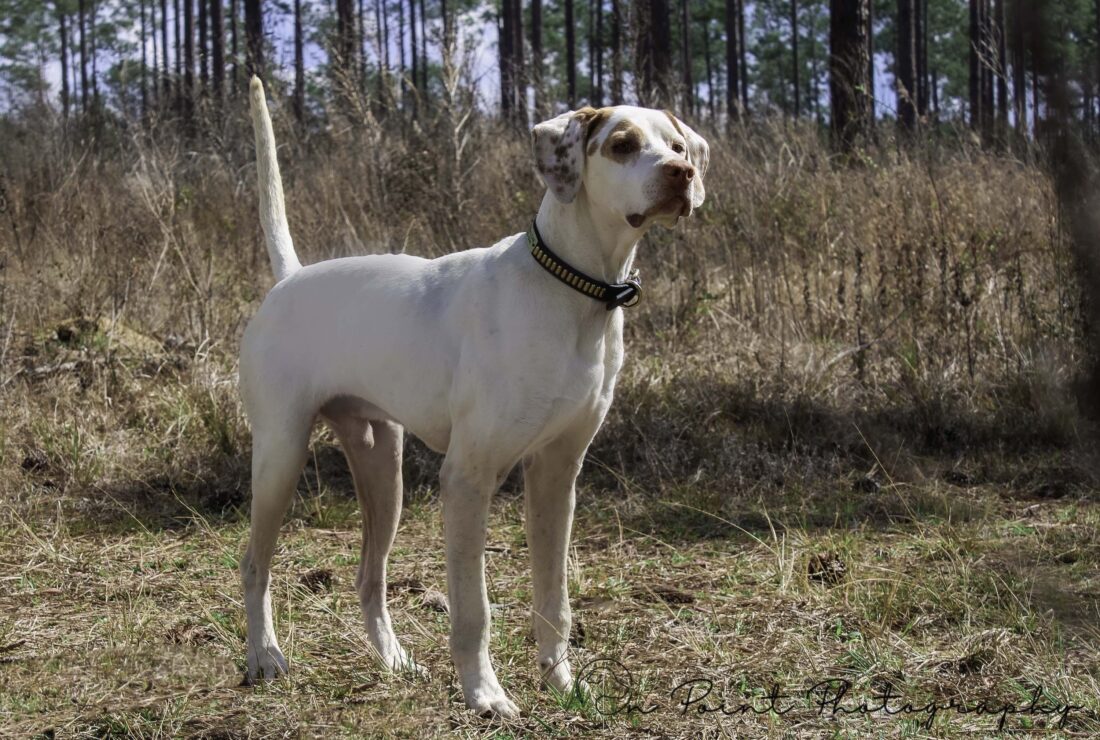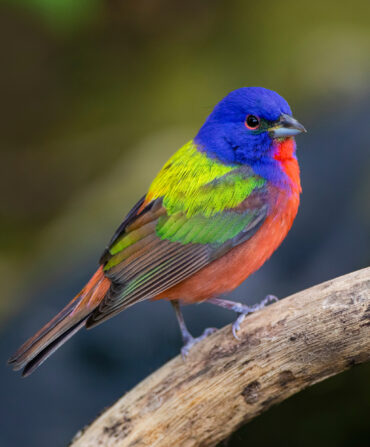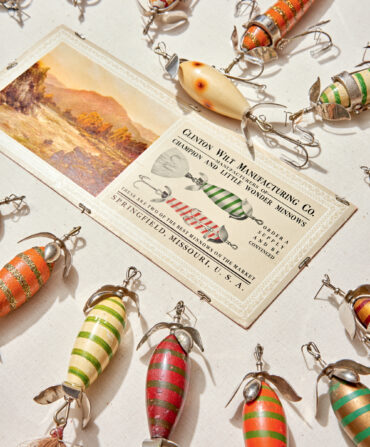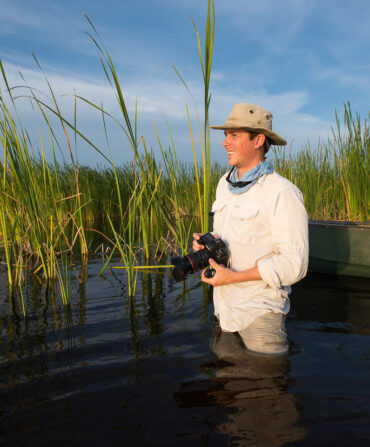When Touch’s Gallatin Fire, called Bob in the field, was unleashed into the grasses, brambles, and woods of West Tennessee’s Ames Plantation for the 125th National Bird Dog Championship on February 15, several other contenders had already made impressive runs. In five previous National Championship field trial appearances, Bob, a white, orange, and ticked English pointer, had never completed a three-hour run, and at eight years old, he is approaching the (pardon) tail end of what is considered competition age for a gundog. Oh, and in his two-dog brace, he was going nose to nose with last year’s champion, Miller’s Blindsider. So yeah, no pressure.

Apparently nobody told Bob the odds, as he found quail five times over three hours and, upon the competition’s conclusion a few days later, was judged the 2024 champion. No doubt his Montana-based owners, Alex and Brianna Rickert, are thrilled, but no more so than handler Mark McLean of Doerun, Georgia. McLean has been a top trainer for years, and he shared some expert advice for the training of a top dog.
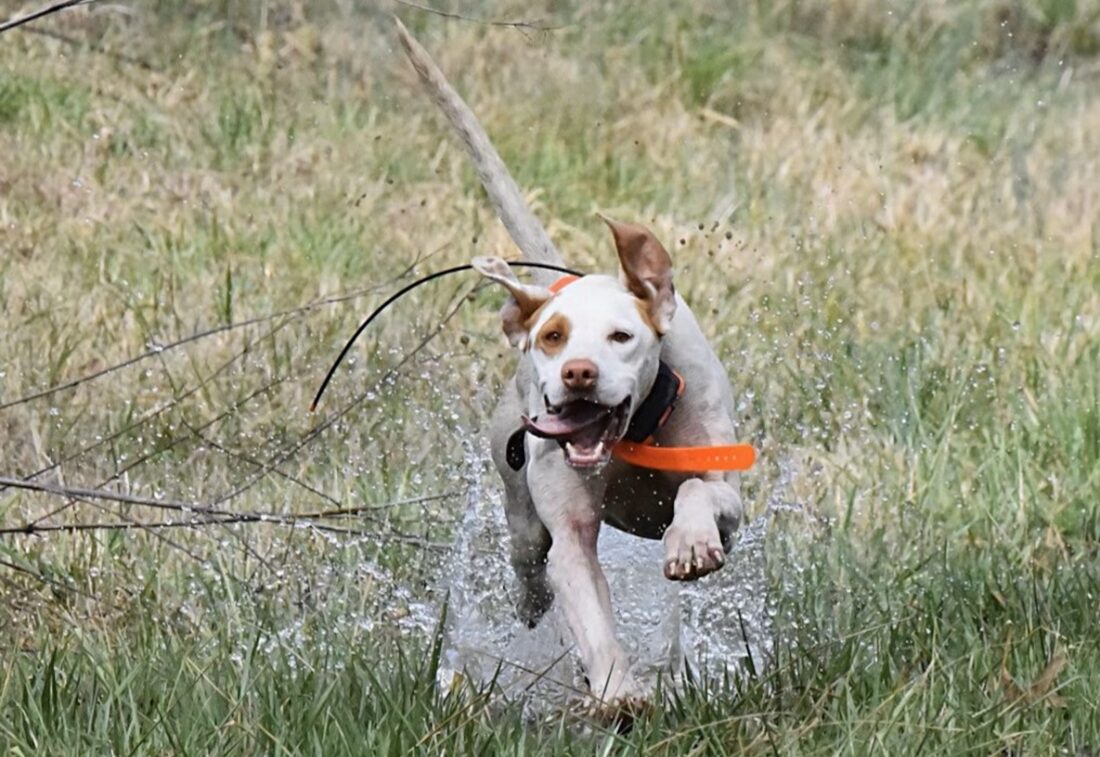
Train like Rocky
“These dogs are similar to top athletes, and a field trial is like running a marathon. They have to be prepared for longer heats, so training for something like this requires hours and hours of exercise. We might run strong in sessions of two hours, stopping for water breaks.”
Keep the “gun” in “gundog”
“Some trainers believe actually hunting with competition dogs, which means keeping them closer to you, takes the race out of them, but I don’t think that’s true. I hunt birds with my dogs a lot, putting them in a hunting environment and shooting over them. Making Bob hunt and handle didn’t stop him from doing his best.”
Give the judges a dose of drama
“Handling a dog in competition is a bit of a show. When giving verbal commands, I might holler a little louder to get that wow factor—if you’re not excited, the judges aren’t excited. And sometimes you have to gamble on sending the dog in the right direction, like around a big edge out of sight, rather than being conservative and holding onto the dog the whole time. If he doesn’t make the move you need, it will hurt you, but if he does, it’s big, like a Hail Mary in a football game.”
Praise, but don’t spoil
“A gundog that’s been mistreated absolutely won’t perform well, but they aren’t really pets. Most of my dogs stay with me all year—I praise them, take care of their needs, and let them know I care, but don’t do too much more than that. The owners are the ones who spoil them. They want to hug on the dogs right before they run. I have one owner who likes to a give a kiss for good luck, even though I say to save that for later. Still, after Bob won, he got a ride back to the stable, and he’s getting some time off. I’m just letting him do his thing.”
And old dog is a wise dog
“Older dogs can have an advantage in certain circumstances. They’ve learned a lot, of course, and tend to pace themselves over a run instead of blowing themselves like some young dogs. At Ames, Bob’s first two hours or so were perfect, and his last forty minutes took heart, guts, and sheer determination to get it done. We always thought Bob could win the National, but he got Lyme disease early in his life, and that has affected him at times. This year, he had all his normal spark. He pulled it out and showed everybody what he was supposed to be his whole life. He got his due, and that’s pretty cool.”


